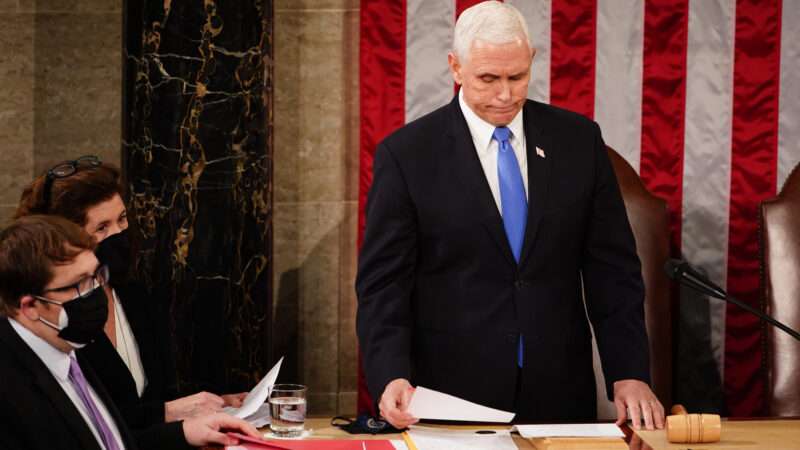

Yesterday, the House of Representatives passed a bill to reform the Electoral Count Act (ECA), a vague 1887 law whose loopholes Donald Trump tried to exploit to overturn the results of the 2020 election, and which could potentially be abused by unscrupulous politicians in future elections. The House bill is similar to, but goes somewhat further than a recent proposal developed by a bipartisan group of senators.
Either version of the bill would be a huge step forward relative to the status quo.
In a July post, building on the work of Andy Craig of the Cato Institute (a leading expert on ECA reform), I summarized the three main goals a reform bill achieve:
1. Preventing state governments from, in effect, changing the rules after election day, in order to reverse election results they don't like.
2. Preventing Congress from throwing out electoral votes for bogus reasons (as some GOP members of Congress sought to do after the 2020 election).
3. Making it more clear that the Vice-President does not have the power to invalidate electoral votes (a step then-VP Mike Pence rightly refused to take in January 2021, despite the urging of Donald Trump).
The House and Senate proposals both include major improvements on all three points. In a recent post at the Cato website, Andy Craig provides a helpful summary of the similarities and differences between the two bills, concluding that the House version is actually somewhat stronger:
The two bills are broadly similar in most respects, but with some key differences that will have to be reconciled. It is likely some of these changes will be reflected in amendments made to the Senate's bill, with amendments expected to bring the two closer together in at least some respects.
Broadly speaking, the new House bill reflects a more aggressive approach to constraining the various actors involved in the presidential election process: state legislatures, state governors and executive branch officials, the National Archives, the vice president, and Congress. In some respects, that makes it a more conservative and originalist bill, keen to limit the discretion of political actors in what is supposed to be a mandatory and fundamentally non‐discretionary constitutional process. To do this, PERA provides more specific and concrete limits in the law itself, and it also provides a somewhat more expansive role for the federal courts in enforcing those provisions.
Prominent election law scholar Derek Muller, who was part of a cross-ideological group of experts who endorsed and helped develop the Senate version, offers some potential reservations about one provision of the House bill, which creates a new legal cause of action challenging state officials' refusals to "tabulate" the vote of any person "who is entitled to vote under Federal law or is otherwise qualified to vote." But, as he emphasizes this part of the proposal could easily be severed from the rest of the bill. If it is included, its possible shortcomings strike me as a small price to pay for the major progress the bill makes on other fronts.
Unfortunately, support for the House bill has been more polarized between the parties, than that for the Senate version. While the latter has already been co-sponsored by ten GOP senators (enough to break any filibuster), only 9 Republicans joined 220 Democrats in supporting the former. This divergence may reflect House Republicans' greater subservience to Donald Trump as compared to their Senate colleagues —a difference reflected in the former's vastly greater support for his efforts to overturn the 2020 election, when 147 House Republicans voted to disqualify electoral votes from swing states, compared to only 7 senators). But it is also possible that many of the House Republicans who rejected the House ECA reform bill will ultimately support a reconciliation bill closer to the Senate version.
Partisan politics, notwithstanding, there is a high likelihood that some version of the bill will pass both houses before the end of the year. That's progress worth applauding. ECA reform will not fix all the problems that beset American democracy. But it can close some dangerous loopholes that were revealed in 2020.
The post House Passes Electoral Count Act Reform Bill appeared first on Reason.com.







